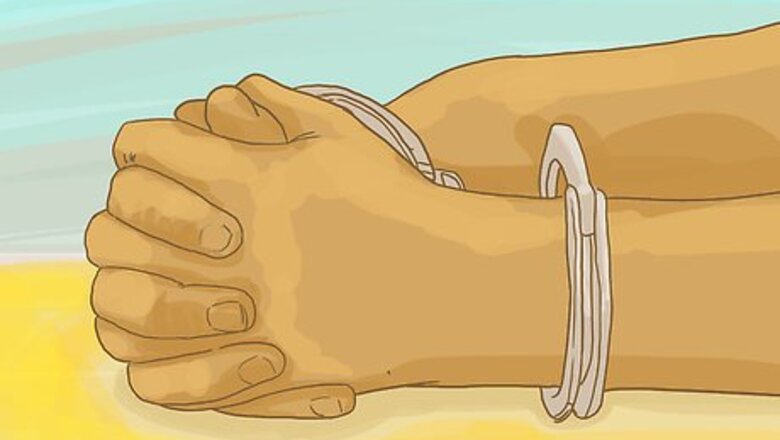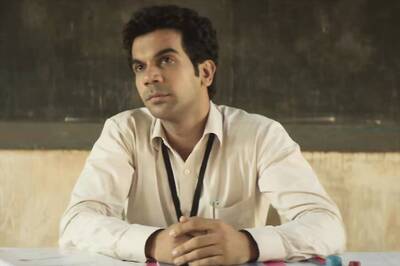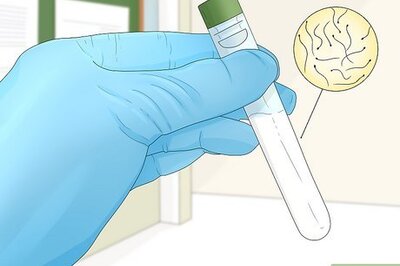
views
X
Research source
[2]
X
Research source
Proving Criminal Liability

Introduce evidence of a juvenile conviction. Before a parent can be held accountable for juvenile crime, the child must be adjudicated delinquent in a juvenile court. Proof of that delinquency is the essential first step in most criminal laws that punish parents for their child's criminal acts. Parents also can be held responsible for so-called "status crimes," offenses such as truancy or violation of curfew that only apply to minors. Depending on the jurisdiction, prosecutors may initiate criminal charges for violation of a parental responsibility law independently, or in conjunction with the delinquency adjudication in juvenile court.

Establish the defendants are the parents or legal guardians of the child. Proving parentage alone often isn't enough to prove parental accountability for juvenile crime. The prosecutor also must show that the defendants had legal custody and control over the child when the delinquent acts occurred. Parents who are divorced or legally separated typically are only accountable for their child's criminal acts while the child is in their custody. For example, if a child's father has custody of her on weekends, the father could not be held accountable for a criminal act she committed on Wednesday. Neither a parent or a legal guardian can be held accountable for the child's criminal acts if the child is in state custody, for example through social services. This means a foster parent typically couldn't be held accountable for the criminal acts of a foster child.

Show the parents' actions contributed to the child's delinquency. If parents are being charged with contributing to the delinquency of a minor, they must have directly assisted or encouraged the child's criminal behavior in some way. For a parent to be convicted of contributing to the delinquency of a minor, the prosecutor must be able to prove the parent committed an act that enabled the child to commit the crime. For example, if a parent buys alcohol for teenagers having a party in his house, that parent could face charges for contributing to the delinquency of minors who consumed the alcohol. Less direct actions also could qualify as contributing to the delinquency of a minor. For example, if a father drove his child to the house of someone he knew sold illegal drugs, waited for the child outside, and drove the child home five minutes later, a prosecutor could argue that the father knew he was taking the child to score illegal drugs.

Demonstrate that the parents failed to do their parental duty. Some states have parental responsibility laws that punish parents criminally for negligent parenting if their child commits criminal acts, even if the parents did nothing to directly assist the child's behavior. Parental duty is defined using a reasonableness standard. The court evaluates whether parents have protected, supervised, and attended to their children to the same extent a reasonable, law-abiding parent would. Criminal parental responsibility laws such as those in California allow prosecutors to charge negligent parents with a misdemeanor criminal offense. To prove parents have been negligent, prosecutors would introduce evidence to prove what reasonable parents would have done to prevent their children from committing crimes, and then show that the delinquent child's parents failed to live up to that standard. If convicted, parents must pay fines and may have to serve up to a year in jail.
Proving Civil Liability

Provide evidence that the child was at fault. Before parents can be ordered to pay damages for the acts of their children, you must be able to show that the child caused the loss or destruction of property. Many states require the child to have been adjudicated delinquent before the victims can go after the parents for damages. In some states, parents can be held liable for damages even if the child was not adjudicated delinquent. However, the plaintiff must be able to show that the child's actions were willful or malicious. Hawaii's parental responsibility law has much broader application than that of other states, making parents responsible for their child's negligent acts as well as intentional acts.

Establish the defendants are the parents or legal guardians of the child. To hold parents accountable for juvenile crime, you must prove that they had legal custody and responsibility for the child's actions at the time the crime was committed. As with criminal liability, the plaintiff must prove that the parent had legal responsibility for the child. If the child's parents are divorced or legally separated, this means the plaintiff must show the parent they're suing had custody of the child when the damages occurred. Typically custody and responsibility for a child could be shown by introducing a copy of the custody order in the parents' divorce case, or a court-approved parenting time agreement. If the child is staying with a relative other than their parents, that relative is only accountable for the child's crimes if they have legal guardianship of the child.

Introduce evidence that the parents failed to properly control their child. Parental responsibility laws require proof that the parents neglected their child, and that neglect contributed to the child's delinquency. Direct evidence of parental neglect can be used, including reports from any child welfare calls or inspections that were conducted. Plaintiffs also might rely on witness testimony from neighbors, family friends and relatives, or the child's teachers to show a neglect of parental responsibility. In many states, if the child has been adjudicated delinquent in a juvenile court, the adjudication itself can be introduced to prove "negligence per se." Legally, the existence of a juvenile adjudication is sufficient evidence that the parents have neglected their parental duties.

Show that the parents provided the child with access. In many states, parental responsibility laws hold parents accountable if they allow access to firearms used by the child in the commission of a crime, or if the child has access to a car that causes damages. Some states such as Hawaii hold parents liable for any property damages or injuries that result from accidents the child has while driving a car. Many states also have gun control laws that hold parents responsible if firearms in the house are not locked away to restrict children from having access to them. If the plaintiff can prove the parent provided the child with access, the parent will be held accountable for any damage caused by the child, including property loss and personal injury.

Present documentation to support the amount of damages. Negligent parents can only be held responsible for damages proven to have resulted from the child's delinquent acts, typically subject to a maximum limit set in the state's parental responsibility law. Parental responsibility laws cap the amount of damages for which parents can be liable in many states. However, some states such as Louisiana do not limit parents' financial exposure when their child commits a criminal act. Some states only allow victims to collect actual damages from parents, not amounts designed to compensate for pain and suffering. Actual damages must be quantifiable and backed up by proof of expenses incurred. For example, if a child was adjudicated delinquent for painting graffiti on the wall of a business, the business could sue the parents for the amount of money it cost to cover or remove the graffiti. However, if the child was required to remove the graffiti as part of his or her sentence, the business could not rightfully sue for the costs of removal, since it did not actually incur those expenses.




















Comments
0 comment